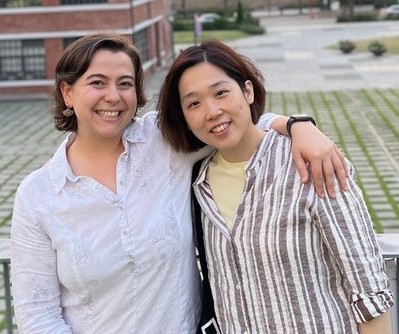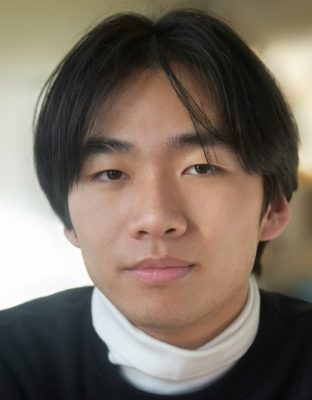
Original classical music compositions inspired by climate-related data will be created and performed through the Connecticut Sea Grant Arts Support Award, under a project led by UConn Marine Sciences doctoral candidate Molly M. James and two collaborators.
“Science communication has been a passion of mine for a while,” said James, 27, who focuses on the dynamics of flooding in salt marshes in her home state of Connecticut for her doctoral research and in her free time plays trombone with the Southeastern Connecticut Community Orchestra. “We’re trying to make music be part of the narrative on climate change by having people connect it to the nature around them.”
Collaborators on the project, titled “Harmony of Nature,” will be South Korean pianist Hea Youn “Sophy” Chung, and Max Lu, who is studying music composition at The Juilliard School and computer science at Columbia University in New York City. Plans are for recordings of the compositions created through the project to be made available on Apple Music and Spotify streaming platforms, and for one or more live interactive performances of the works.
Syma Ebbin, CTSG research coordinator who has overseen the arts support program since it began in 2009, said that while past projects have included music as an element, “Harmony of Nature” is the first conceived with the primary purpose of creating original musical compositions.
“This proposal is so exciting because it constitutes a true science-art collaboration, translating environmental time series data into music,” Ebbin said. “Aside from the aesthetic value of the project, I think it has the capacity to get listeners to think very differently about how an abstract event like climate change impacts the world we live in, and this heightened awareness may be able to spur people to behave differently.”

James and Chung met almost a decade ago while Chung was studying collaborative piano at The Juilliard School. That meeting grew into an online friendship during the COVID-19 pandemic that led to Chung and James working together to create music from scientific data culled from gauges that track stream flow, tides, currents and other measures of environmental conditions. They received initial funding from Arts Council Korea to test the feasibility of the concept, which resulted in five compositions that were recorded in 2022 and made available on Spotify, Apple Music and Amazon Music. Chung performed the pieces for the South Korean public last November, and James shared that initial version of the project with a local audience in a lecture last spring that was part of the Coastal Perspectives series at UConn Avery Point.
While other scientist-musician collaborations have used data to create music, this project will involve development of a unique method and interpretation by Lu to translate statistical analysis of environmental data into notes and rhythms.
“By expressing invisible science and natural phenomena through art, we want to convey scientific concepts more effectively, especially the effects of climate change, through music,” James wrote in her proposal to CT Sea Grant.
Music, she added, can evoke emotions in a way that abstract scientific data cannot, helping people to understand and care about how climate change is affecting humans, wildlife and the entire earth.
The $1,000 arts award will be used for equipment to collect temperature and humidity data, recording and sound mixing services, print materials for musical scores, concert and exhibit flyers and funds to support an exhibit and performance.
Listen to the WSHU public radio interview with James that was broadcast on Aug. 9.
More information: CTSG Communications Coordinator Judy Benson: judy.benson@uconn.edu